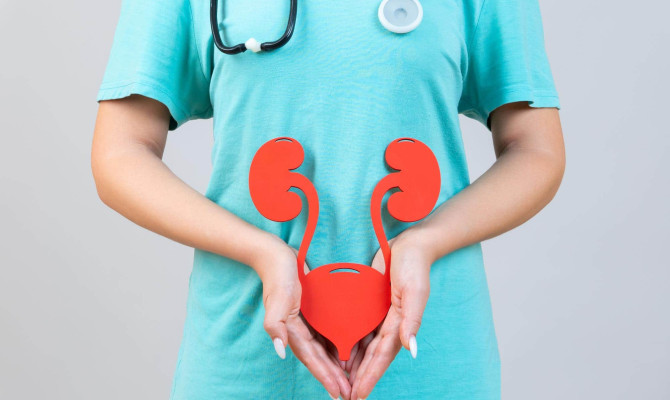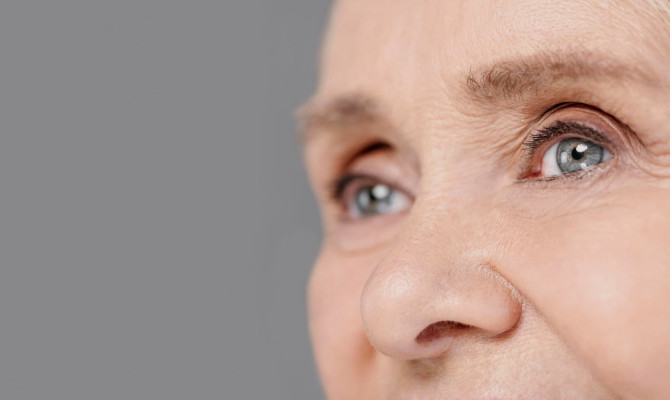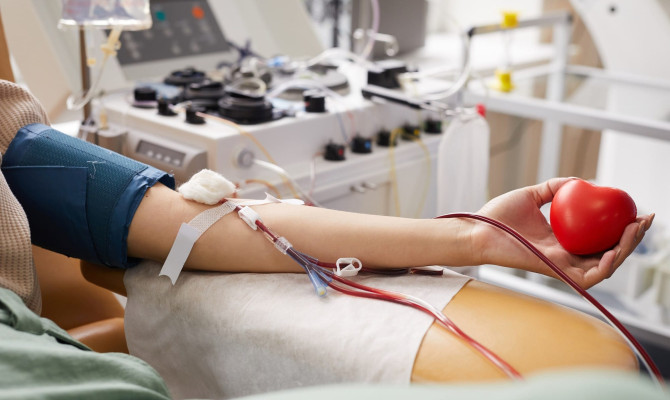Addison’s disease: An uncommon illness

- Addison's disease
- 14 Aug 2023
Overview
Overview
Addison’s disease (also called adrenal insufficiency) is a rare disorder due to insufficient adrenal hormones (viz; cortisol and aldosterone) from the adrenal glands. Humans have two adrenal glands. Adrenal glands are endocrine glands (which produce hormones, i.e. chemical messengers that signal the body to do different activities) located at the top of our two kidneys.
Cortisol is a hormone that breaks down proteins, carbohydrates, and fats in our bodies. It regulates blood pressure, blood sugar, heart function, and sleep-wake cycle and makes our body’s immune response in our body respond to certain stress conditions such as illness and injury.
While aldosterone is a hormone that regulates our blood’s sodium and potassium balance, it also controls the fluid released by our kidneys as urine. It affects blood volume and blood pressure.
Before going into the detail of Addison’s disease, let us know what adrenal insufficiency is.
Adrenal insufficiency is when the body cannot produce sufficient cortisol hormone.

Classification
Types of adrenal insufficiency/ Primary adrenal insufficiency
Adrenal insufficiency may be of two types. They are as follows:
- Primary adrenal insufficiency
- Secondary adrenal insufficiency
Primary adrenal insufficiency
- Primary adrenal insufficiency is an unusual situation known as Addison’s disease. This condition occurs when the adrenal glands are damaged and incapable of producing cortisol and aldosterone hormones. This disorder can take place at any age.
Secondary adrenal insufficiency
- Secondary adrenal insufficiency is the incapability of the pituitary gland (type of endocrine gland) to produce adrenocorticotropin (ACTH) hormone. ACTH stimulates the production of cortisol stress hormones from the adrenal gland. Consequently, the adrenal glands cannot produce adequate cortisol for normal body functioning.
Symptoms
Symptoms of Addison’s disease
A patient may have moderate symptoms during any physical distress. However, symptoms may vary from person to person. Symptoms may include the following:
- Tiredness
- Excessive weakness
- Lightheadedness
- Faintness
- Appetite loss
- Prominent decrease in weight
- Dark colored skin( hyper pigmentation)
- Change of color (Bluish-black color) around the mouth, rectum, scrotum or vagina, nipples (happens only in Addison’s disease)
- Muscle pain
- Dehydration
- Stomach problem
- Diarrhoea
- Hypotension (low blood pressure)
- Hypoglycemia (low blood sugar)
- Nausea and vomiting
- Irregular or absence of menstruation period ( in females)
Moreover, Addison’s disease may also lead to mood swings in the patient with excessive irritability and depression and extreme desire for salty food items.
Addison’s disease (Adrenal insufficiency), if left untreated, may lead to the following conditions:
- Tremendous weakness
- Anxiety and depression
- Unbearable stomach ache
- Hypotension (low blood pressure)
- Kidney malfunctioning and damage
- The severe shock, which can be fatal sometimes
Although the symptoms resemble other health issues, one should recognize the signs and always contact a physician for an accurate diagnosis.
Causes
Causes of Addison’s disease
The cause of Addison’s disease is due to
- The faulty immune response is when the immune system attacks its healthy cells of the outer part of the adrenal glands (i.e. the adrenal cortex). The adrenal cortex of adrenal glands is responsible for producing cortisol and aldosterone hormones.
Some other notable causes of Addison’s disease are as follows:
- Tuberculosis infection (major cause in developing countries)
- Fungal infection
- Hereditary disorders of the endocrine gland, such as polyendocrine syndromes
- Cancer
Other rare causes of Addison’s disease include the following:
- Adrenal glands removal by surgery
- Adrenal glands bleeding
- HIV infection
- Amyloid proteins of the vital organs cause destruction (Amyloidosis) 1Causes of addison’s disease | Researched based study from sciencedirect.com
Diagnosis
Tests to diagnose Addison’s disease
To diagnose Addison’s disease, a doctor recommends the following tests-
- Blood tests
- Insulin-induced hypoglycemia test
- ACTH stimulation test
- CT scan(Computed tomography)
Blood tests
Blood tests include tests to measure the levels of
- Potassium
- Sodium
- Hormones (viz; adrenocorticotropin (ACTH) and cortisol) in the blood.
Insulin-induced hypoglycemia test
This test is performed
- To clarify if the symptoms are due to adrenal glands or pituitary glands (secondary adrenal insufficiency).
- To check for the sugar levels in the blood.
The patients are administered insulin injections before and after taking the blood sample. The test result should show a decrease in sugar level (hypoglycemia) and an increase in cortisol level in the blood.
ACTH stimulation test
- This test measures the accurate functioning of the adrenal glands. For this test, artificial ACTH is injected into patients, and if the patient’s blood test shows a low level of cortisol hormone, then it is to be understood that there is malfunctioning in the adrenal glands.
CT scan (Computed tomography)
- CT scan (Computed tomography) is an imaging procedure that utilizes computer technology and X-rays to get a detailed view of the inside of our body. CT scan clearly shows the patient’s adrenal glands and pituitary glands.
Treatment

Treatment of Addison’s disease
Treatment of Addison’s disease includes the Replacement therapy:
- The patient is treated with synthetic (artificial) hormones of cortisol and aldosterone to make up for the patient’s deficiency in these hormones.
- Drugs such as Hydrocortisone (for increasing cortisol level), and Fludrocortisone (for increasing aldosterone level) are prescribed to the patients.
- A doctor also advises patients taking fludrocortisone drugs to increase their salt consumption, especially during the hot and humid season and after physical exercise.
- Some individuals use dehydroepiandrosterone (DHEA) to increase their libido or stamina (sex drive).
Doses of these medications vary among different individuals depending on the severity of the patient’s disease condition, such as
- Infection
- Surgery
- Some other conditions (illness, injury)
The physician also provides adequate medications to tackle associated problems, such as
- Excessive tiredness
- Thyroid problems
- Diabetes (high sugar level)
Addison’s disease is life-long; medication is to be consumed for the rest of the life. Doctors well managed the symptoms of Addison’s disease with adequate treatment and people can live everyday life with fewer restrictions 2Treatment of Addison’s disease | Researched based study from nhs.uk .
Risk
Risk factors for Addison’s disease
The risk factors for Addison’s disease are
- Diabetes (high sugar)
- Tuberculosis infection
- HIV infection
- fungal infection
- Cancer
- Adrenal gland removal or part of it by surgery
- If the person is regularly taking blood thinning (anticoagulant) medicines
Adrenal crisis
What is adrenal crisis ?
If medicines are not taken, Addison’s disease patients can suddenly worsen their symptoms. The condition is called as adrenal crisis, acute adrenal insufficiency, or Addisonian crisis. It is due to a decrease in the blood’s cortisol level due to a specific infection or to stopping medicines for days.
The symptoms of adrenal crisis are :
- Fever
- Dehydration
- Headache
- Anxiety
- Nausea and vomiting
- Extreme tiredness
Adrenal crisis, if left untreated, can lead to severe health conditions such as
- Convulsions and seizures
- Severe Shock
- Coma(state of unconsciousness and the patient becomes unresponsive)
An adrenal crisis is a life-threatening emergency that could sometimes be fatal and require immediate medical attention.
Healthcare givers must act immediately when Addison’s disease patient experiences any adrenal crisis symptoms. Contact the emergency medical team based on the geographical location for support and help 3Adrenal crisis | Researched based study from nih.gov .
Natural Ways
Natural treatment of Addison’s disease
Natural treatment of Addison’s disease includes the following
Diet modification
- A well-planned balanced diet of fruits and vegetables can improve our body’s defences against autoimmune attacks (the immune system attacking its healthy cells).
- It keeps the hormones at normal levels so that Addison’s disease patient’s symptoms do not worsen over time.
Exercise, yoga and meditation
- Addison’s disease is related to hormone production, so instability of mental conditions like anxiety and depression is often seen in patients.
- Regular exercise, yoga (deep breathing and slow movement) and meditation (a technique of increasing concentration by focusing on a particular thing) can keep away associated mental issues of Addison’s disease patients.
Herbal remedies
Herbal remedies for treating Addison’s disease are as follows-
- Green tea-Green tea is rich in antioxidants and thus can help in the body’s immune response against pathogens and autoimmune attacks. It also can tackle the associated symptoms of Addison’s disease, such as headaches, mental problems and digestive problems.
- Ginger-Ginger is an herbaceous plant that treats stomach problems, nausea and vomiting associated with Addison’s disease.
- Turmeric-Turmeric contains curcumin, which boosts the immune system, increases hormone production and helps reverse the detrimental effect of reduced cortisol hormone.
- Reishi Mushroom-Reishi Mushroom helps the body respond to stress and also assists in normal adrenal functioning.
- Echinaceae, astragalus and milk thistle-These herbal supplements can boost the body’s immune system against the detrimental effects of Addison’s disease.
However, there is no cure for Addison’s disease. Hence, it is essential to take medical assistance and follow the treatment plan to maintain a healthy everyday life.
Any feedback on this article?
 This Articles content was accurate
This Articles content was accurate Very Informative Article
Very Informative Article I have a question or a comment
I have a question or a comment
 This article contains inaccurate content
This article contains inaccurate content This article was not helpful
This article was not helpful I have a question or a comment
I have a question or a comment
We appreciate your helpful feedback!
Checkout our social pages
References
-
Science Direct
Addison's Disease/Causes
-
National Health Service
Treatment-Addison's disease/Replacement therapy
-
National Institutes of Health
Addison's disease/Adrenal Crisis





































